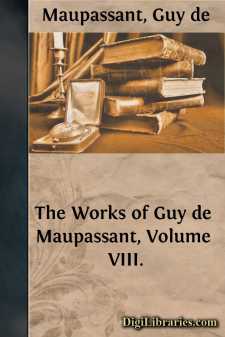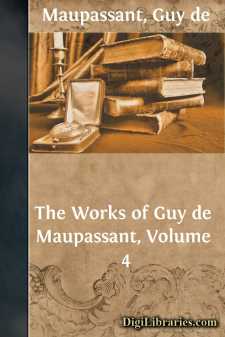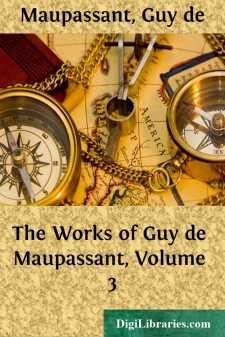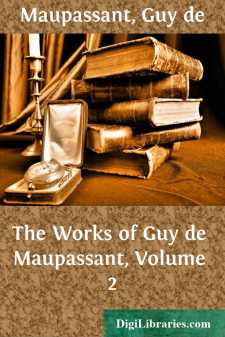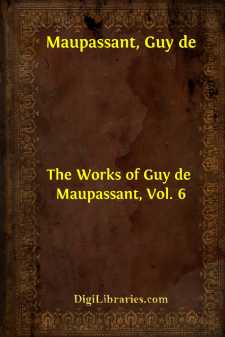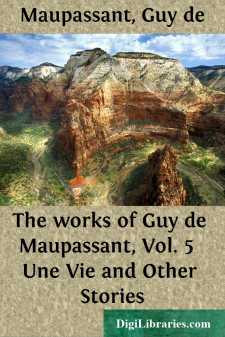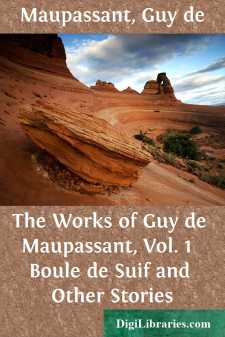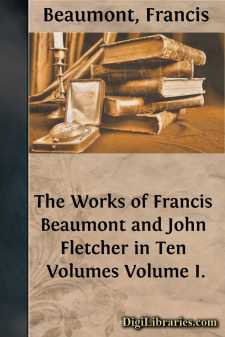Fiction
- Action & Adventure 180
- Biographical 15
- Christian 59
- Classics 6965
- Coming of Age 5
- Contemporary Women 3
- Erotica 8
- Espionage/Intrigue 12
- Fairy Tales, Folklore & Mythology 236
- Family Life 169
- Fantasy 117
- Gay 1
- General 596
- Ghost 32
- Historical 808
- Horror 43
- Humorous 160
- Jewish 25
- Legal 4
- Medical 22
- Mystery & Detective 315
- Political 49
- Psychological 41
- Religious 64
- Romance 159
- Sagas 11
- Science Fiction 730
- Sea Stories 113
- Short Stories (single author) 537
- Sports 10
- Suspense 1
- Technological 8
- Thrillers 2
- Urban Life 31
- Visionary & Metaphysical 1
- War & Military 173
- Westerns 199
Fiction Books
Sort by:
Of the seventy-three "Epigrams and Jeux d'Esprit," which are printed at the commencement of this volume, forty-five were included in Murray's one-volume edition of 1837, eighteen have been collected from various publications, and ten are printed and published for the first time. The "Devil's Drive," which appears in Moore's Letters and Journals, and in the sixth...
more...
by:
Henry Fielding
PROLOGUE, SPOKEN BY MR JONES Too long the Tragick Muse hath aw'd the stage,And frighten'd wives and children with her rage,Too long Drawcansir roars, Parthenope weeps,While ev'ry lady cries, and critick sleepsWith ghosts, rapes, murders, tender hearts they wound,Or else, like thunder, terrify with soundWhen the skill'd actress to her weeping eyes,With artful sigh, the handkerchief...
more...
OF "THE NOVEL" do not intend in these pages to put in a plea for this little novel. On the contrary, the ideas I shall try to set forth will rather involve a criticism of the class of psychological analysis which I have undertaken in Pierre et Jean. I propose to treat of novels in general. I am not the only writer who finds himself taken to task in the same terms each time he brings out a new...
more...
Count Eustache d'Etchegorry's solitary country house had the appearance of a poor man's home, where people do not have enough to eat every day in the week, where the bottles are more frequently filled at the pump than in the cellar, and where they wait until it is dark before lighting the candles. It was an old and sordid building; the walls were crumbling to pieces, the grated, iron...
more...
"After all," Count d'Avorsy said, stirring his tea with the slow movements of a prelate, "what truth was there in anything that was said at Court, almost without any restraint, and did the Empress, whose beauty has been ruined by some secret grief, who will no longer see anyone and who soothes her continual mental weariness by some journeys without an object and without a rest, in...
more...
I Little George was making hills of sand in one of the walks; he took it up with both his hands, made it into a pyramid, and then put a chestnut leaf on the top, and his father, sitting on an iron chair was looking at him with concentrated and affectionate attention, and saw nobody but him in that small public garden which was full of people. All along the circular road other children were occupied in...
more...
When the cashier had given him the change out of his five francpiece, George Duroy left the restaurant. As he had a good carriage, both naturally and from his military training, he drew himself up, twirled his moustache, and threw upon the lingering customers a rapid and sweeping glance—one of those glances which take in everything within their range like a casting net. The women looked up at him in...
more...
The most robust and masculine of recent French novelists is a typical Norman, sprung from an ancient noble family, originally of Lorraine, but long settled in the Pays de Caux. The traveler from England towards Paris, soon after leaving Dieppe, sees on his left hand, immediately beyond the station of St. Aubin, a handsome sixteenth-century house, the Château de Miromesnil, on a hill above the railway....
more...
The first aim of art, no doubt, is the representation of things as they are. But then things are as our eyes see them and as our minds make them; and it is thus of primary importance for the critic to distinguish the precise qualities of the eyes and minds which make the world into imaginative literature. Reality may be so definite and so false, just as it may be so fantastic and so true; and, among...
more...
by:
Francis Beaumont
TO THE READER. Poetry is the Child of Nature, which regulated and made beautifull by Art, presenteth the most Harmonious of all other compositions; among which (if we rightly consider) the Dramaticall is the most absolute, in regard of those transcendent Abilities, which should waite upon the_ Composer; who must have more then the instruction of Libraries which of it selfe is but a cold contemplative...
more...




